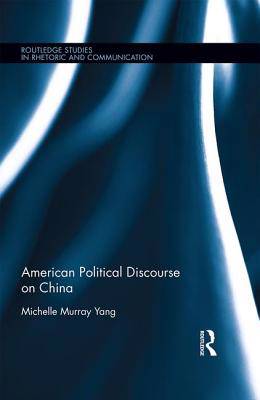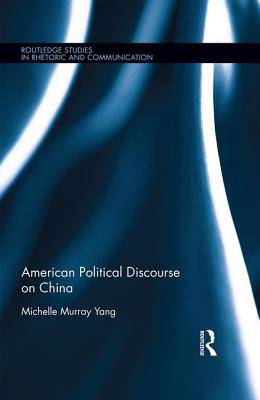
- Afhalen na 1 uur in een winkel met voorraad
- Gratis thuislevering in België vanaf € 30
- Ruim aanbod met 7 miljoen producten
- Afhalen na 1 uur in een winkel met voorraad
- Gratis thuislevering in België vanaf € 30
- Ruim aanbod met 7 miljoen producten
Omschrijving
Despite the U.S. and China's shared economic and political interests, distrust between the nations persists. How does the United States rhetorically navigate its relationship with China in the midst of continued distrust? This book pursues this question by rhetorically analyzing U.S. news and political discourse concerning the 2008 Beijing Olympic Games, the 2010 U.S. midterm elections, the 2012 U.S. presidential election, and the 2014-2015 Chinese cyber espionage controversy. It finds that memory frames of China as the yellow peril and the red menace have combined to construct China as a threatening red peril. Red peril characterizations revive and revise yellow peril tropes of China as a moral, political, economic and military threat by imbuing them with anti-communist ideology. Tracing the origins, functions, and implications of the red peril, this study illustrates how historical representations of the Chinese threat continue to limit understanding of U.S.-Sino relations by keeping the nations' relationship mired in the past.
Specificaties
Betrokkenen
- Auteur(s):
- Uitgeverij:
Inhoud
- Aantal bladzijden:
- 250
- Taal:
- Engels
- Reeks:
Eigenschappen
- Productcode (EAN):
- 9781138216334
- Verschijningsdatum:
- 8/06/2017
- Uitvoering:
- Hardcover
- Formaat:
- Genaaid
- Afmetingen:
- 152 mm x 229 mm
- Gewicht:
- 503 g

Alleen bij Standaard Boekhandel
Beoordelingen
We publiceren alleen reviews die voldoen aan de voorwaarden voor reviews. Bekijk onze voorwaarden voor reviews.











